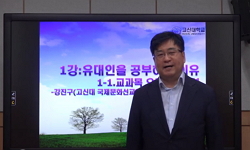In this paper, we analyze “Gangnam Style” re-makes from a memetic point of view. Our examination unfolds in three parts. First, we present our conceptual framework, according to which Internet memes constitute forms of interpretive (and potentiall...
http://chineseinput.net/에서 pinyin(병음)방식으로 중국어를 변환할 수 있습니다.
변환된 중국어를 복사하여 사용하시면 됩니다.
- 中文 을 입력하시려면 zhongwen을 입력하시고 space를누르시면됩니다.
- 北京 을 입력하시려면 beijing을 입력하시고 space를 누르시면 됩니다.
https://www.riss.kr/link?id=A101722049
-
저자
Irina Lyan (The Hebrew University of Jerusalem) ; Sulafa Zidani (The Hebrew University of Jerusalem) ; Limor Shifman (The Hebrew University of Jerusalem)
- 발행기관
- 학술지명
- 권호사항
-
발행연도
2015
-
작성언어
English
- 주제어
-
KDC
070
-
등재정보
KCI등재
-
자료형태
학술저널
- 발행기관 URL
-
수록면
10-31(22쪽)
-
KCI 피인용횟수
0
- DOI식별코드
- 제공처
-
0
상세조회 -
0
다운로드
부가정보
다국어 초록 (Multilingual Abstract)
In this paper, we analyze “Gangnam Style” re-makes from a memetic point of view. Our examination unfolds in three parts. First, we present our conceptual framework, according to which Internet memes constitute forms of interpretive (and potentially also political) participation. We then focus our discussion on the case of “Gangnam Style”, in an attempt to unpack the song’s memetic success. In the third and main part we move from the initial video to its successors, asking: What types of changes were introduced to the original version when it migrated to other territories? Focusing on the Middle East, we applied comparative thematic analysis to 78 versions created by Hebrew-speaking populations (mainly in Israel) and 68 versions created by Arab speakers in the Greater Middle East. Our main findings show both similarities between the corpuses (particularly with regards to women’s marginal role in the clips) and differences between them. While Arab creators used “Gangnam Style” as a tool for carnivalesque socio-political satire, Israeli ones tended to “erase” the original meaning by focusing on middle-class lifestyle, leisure, and entertainment. Finally, we claim that remakes of “Gangnam Style” and similar videos may serve as important vessels for negotiating images and identities of conflicted environments.
참고문헌 (Reference)
1 Lie, J., "Why didn’t"Gangnam Style"go viral in Japan? : Gender divide and subcultural heterogeneity in contemporary Japan" 3 (3): 6-31, 2014
2 Khazzoom, A., "Western culture, ethnic labeling and social closure:The background of ethnic inequality in Israel" 1 : 385-428, 1999
3 Gray, J., "Watching with the Simpsons: Television, Parody, and Intertextuality" Routledge 2006
4 Cheah, J., "Theological Reflections on “Gangnam Style”: A Racial, Sexual, and Cultural Critique" Palgrave Macmillan 2014
5 Morley, D., "The ‘Nationwide’ Audience" British Film Institute 1980
6 Bennett, W. L., "The logic of connective action" 15 (15): 739-768, 2012
7 Kampf, Z., "The age of apology: Evidence from the Israeli public discourse" 19 (19): 257-273, 2009
8 Milner, R., "The World Made Meme: Discourse and Identity in Participatory Media" University of Kansas 2012
9 Benkler, Y., "The Wealth of Networks: How Social Production Transforms Markets and Freedom" Yale University Press 2006
10 Katz, E., "The Uses of Mass Communications: Current Perspectives on Gratifications Research" Sage 19-32, 1974
1 Lie, J., "Why didn’t"Gangnam Style"go viral in Japan? : Gender divide and subcultural heterogeneity in contemporary Japan" 3 (3): 6-31, 2014
2 Khazzoom, A., "Western culture, ethnic labeling and social closure:The background of ethnic inequality in Israel" 1 : 385-428, 1999
3 Gray, J., "Watching with the Simpsons: Television, Parody, and Intertextuality" Routledge 2006
4 Cheah, J., "Theological Reflections on “Gangnam Style”: A Racial, Sexual, and Cultural Critique" Palgrave Macmillan 2014
5 Morley, D., "The ‘Nationwide’ Audience" British Film Institute 1980
6 Bennett, W. L., "The logic of connective action" 15 (15): 739-768, 2012
7 Kampf, Z., "The age of apology: Evidence from the Israeli public discourse" 19 (19): 257-273, 2009
8 Milner, R., "The World Made Meme: Discourse and Identity in Participatory Media" University of Kansas 2012
9 Benkler, Y., "The Wealth of Networks: How Social Production Transforms Markets and Freedom" Yale University Press 2006
10 Katz, E., "The Uses of Mass Communications: Current Perspectives on Gratifications Research" Sage 19-32, 1974
11 Liebes, T., "The Export of Meaning: Cross-Cultural Readings of “Dallas”" Oxford University Press 1990
12 Nicholas A. John, "The Construction of the Multilingual Internet: Unicode, Hebrew, and Globalization" Wiley-Blackwell 18 (18): 321-338, 2013
13 Hebdige, D., "Subculture: The Meaning of Style" Methuen 1979
14 Eckert, P., "SALSA XI: Proceedings of the Eleventh Annual Symposium about Language and Society" Texas Linguistics Forum 2004
15 Bolsover, G., "Replay, replace and reconfigure - empowered audiences riding the wave of viral videos to make new meanings and speak about their lives" 2013
16 Kraidy, M. M., "Reality television and politics in the Arab world (preliminary observations)" 2 (2): 7-28, 2006
17 Bakhtin, M. M., "Rabelais and His World" Indiana University Press 1984
18 Jameson, F., "Postmodernism, or, the Cultural Logic of Late Capitalism" Duke University Press Books 1990
19 Howard, K., "Politics, parodies, and the paradox of Psy’s “Gangnam Style”" 1 : 13-29, 2015
20 S. Chatman, "Parody and Style" Duke University Press 22 (22): 25-39, 2001
21 Shifman, L., "Only joking? Online humour in the 2005 UK general election" 10 : 465-487, 2007
22 Shifman, L., "Memes in a digital world: Re-consoling with a conceptual troublemaker" 18 : 362-377, 2013
23 Shifman, L., "Memes in Digital Culture" MIT Press 2013
24 Pech, R. J., "Memes and cognitive hardwiring: Why are some memes more successful than others?" 6 : 173-181, 2003
25 Tenenboim-Weinblatt, K., "Mediated negotiations : A case study of a transcultural exchange between Lebanon and Israel" 8 (8): 165-185, 2011
26 Warren, J., "Longitudinal gender and age bias in a prominent amateur new media community" 14 : 17-27, 2012
27 Lee, C. S., "Korean Popular Culture in Global Context" Palgrave Macmillan 101-116, 2014
28 Alon Levkowitz, "Korea and the Middle East Turmoil: A Reassessment of South Korea?Middle East Relations" 한국국방연구원 24 (24): 225-238, 2012
29 Shifman, L., "Internet jokes: The secret agents of globalization?" 19 (19): 727-743, 2014
30 Lincoln Dahlberg, "Internet Research Tracings: Towards Non-Reductionist Methodology" Wiley-Blackwell 9 (9): 00-00, 2004
31 Kaplan, D., "Institutionalized erasures: How global structures acquire national meanings in Israeli popular music" 40 (40): 217-236, 2012
32 Noh, S., "Hallyu: Influence of Korean Culture in Asia and Beyond" Seoul National University Press 331-367, 2010
33 Otmazgin, N., "Hallyu across the desert: K-pop fandom in Israel and Palestine" 3 (3): 32-55, 2014
34 Lee, S., "Hallyu 2.0: The Korean Wave in the Age of Social Media" The University of Michigan Press 1-27, 2015
35 Hu, B., "Hallyu 2.0: The Korean Wave in the Age of Social Media" The University of Michigan Press 229-243, 2015
36 Robertson, R., "Global Modernises" Sage 25-44, 1995
37 Lyan, I., "From holy land to ‘Hallyu Land’: The symbolic journey following the Korean wave in Israel" 3 (3): 7-21, 2015
38 Noh, S., "Crossing the twenty-first-century Silk Road via social media:A case study of Korean popular culture fans in the Middle East" 2013
39 Jenkins, H., "Convergence Culture: Where Old and New Media Collide" New York University Press 2006
40 Bennett, W. L., "Contesting Media Power: Alternative Media in a Networked World" Rowman & Littlefield 17-38, 2003
41 Billig, M., "Banal Nationalism" Sage 1995
42 Shifman, L., "An anatomy of a YouTube meme" 14 : 187-203, 2012
43 Hemati, S., "Against all odds: South Korea’s nation branding campaign in Iran" 2013
44 Knobel, M., "A New Literacies Sampler" Peter Lang 2007
동일학술지(권/호) 다른 논문
-
De-Westernizing Communication Research
- 한국언론학회
- Yoonjae Nam(서평자)
- 2015
- KCI등재
-
Asian Popular Culture and Korean Wave
- 한국언론학회
- Doobo Shim
- 2015
- KCI등재
-
Male Action vs. Female Inaction
- 한국언론학회
- Arielle Miranda Goldberg
- 2015
- KCI등재
-
- 한국언론학회
- Se Young Kim
- 2015
- KCI등재
분석정보
인용정보 인용지수 설명보기
학술지 이력
| 연월일 | 이력구분 | 이력상세 | 등재구분 |
|---|---|---|---|
| 2026 | 평가예정 | 재인증평가 신청대상 (재인증) | |
| 2020-01-01 | 평가 | 등재학술지 유지 (재인증) |  |
| 2017-01-01 | 평가 | 등재학술지 선정 (계속평가) |  |
| 2015-01-01 | 평가 | 등재후보학술지 선정 (신규평가) |  |
학술지 인용정보
| 기준연도 | WOS-KCI 통합IF(2년) | KCIF(2년) | KCIF(3년) |
|---|---|---|---|
| 2016 | 0.08 | 0.08 | 0.07 |
| KCIF(4년) | KCIF(5년) | 중심성지수(3년) | 즉시성지수 |
| 0.06 | 0 | 0.555 | 0 |




 DBpia
DBpia






